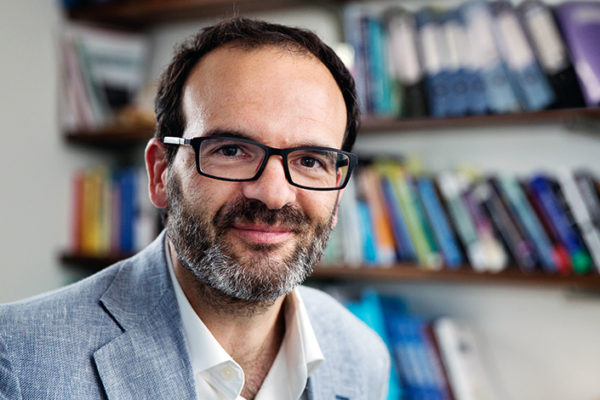A plan to expand the child tax credit would go a long way in reducing childhood poverty in America, saving billions in future costs, says an expert on poverty and inequality at Washington University in St. Louis.
“Prior research has shown that when the child tax credit was expanded and provided on a monthly basis from July through December of 2021, U.S. childhood poverty was cut by approximately 40%,” said Mark Rank, the Herbert S. Hadley Professor of Social Welfare. “This is one of the most dramatic reductions in poverty in recent times.”

A bipartisan deal to expand the credit made it out of the House Ways and Means Committee Jan. 19, though it is unclear how much support the measure has in the broader House.
“Obviously, it’s hard these days to get anything passed in Congress, but this should be a no-brainer,” Rank said. “In addition to the annual cost of child poverty, my research has indicated that for every dollar we spend reducing childhood poverty, we save between 7 and 12 dollars in terms of future costs.”
“This is tremendous bang for the buck,” he said. “The argument should be made that reducing childhood poverty is not only the morally right thing to do. but is also the economically smart thing to do as well. Expanding the child tax credit is an extremely effective policy to reduce poverty in the United States among children.”
Rank’s previous research has indicated that childhood poverty cost $1.03 trillion in 2015, about 28% of the entire federal budget for that year.
“Many industrialized countries have programs known as child allowances, which provide monthly stipends to families with children to economically assist them in the raising of their children,” he said. “This is one of the major reasons why these countries have much lower rates of childhood poverty than the United States. It’s a very straightforward and effective way to reduce poverty among children.”
Rank has written 10 books on a range of subjects, including an exploration of the American dream and a new understanding of poverty and inequality. His upcoming book, “The Random Factor,” explores the role of luck and chance in shaping the course of our lives.
“Expanding the credit should be neither a Democratic nor Republican issue, but an American issue,” Rank said. “We all benefit when children do well.”


